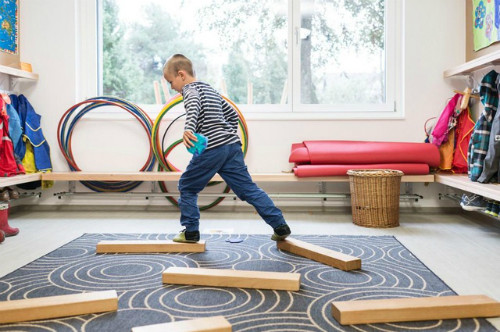The majority of secondary school students in Switzerland go to vocational training.
Swiss children must go to school and finish grade 9 (around 15 years old), then they will be arranged to learn a trade, study a major (70-80%) or go to university.
In Switzerland, responsibility for children's education lies with individual regions and municipalities, which have their own programs.Switzerland also has some of the best (and most expensive) private schools in the world, from kindergarten through to university.
Kindergarten
The minimum age for kindergarten is set by each region, usually between 4 years and 4 years and 9 months. Kindergarten lasts until children start primary school (6 years old).
Under a national agreement, two years of kindergarten will become standard across Switzerland. The minimum age for school entry (4 years) and the age-registration date (31 July) will apply to regions that have adopted the agreement.
Elementary
Children usually start primary school at the age of 6, which is also consistent across regions. Primary school is compulsory and free in Switzerland. Regions and municipalities are responsible for the organization and funding of primary school. In Switzerland, primary school is considered to be the first 6 years of schooling (not including kindergarten or nursery).
 |
Switzerland is working to harmonize its regional education systems. Photo: Swiss Info. |
Junior high school
After primary school, Swiss children must continue to secondary school, which lasts three to five years, depending on the region and city. Secondary school is also compulsory and free, marking the final stage of compulsory education. Children at this level are usually between the ages of 12 and 15. There are no national exams at the end of grade 9 (the final year of school), so students do not receive a certificate of graduation.
Children are assessed and placed in classes based on academic performance, teacher comments, and possibly a test. Tests, behavior, and academic attitudes are used to determine whether a child can move up a grade.
In lower secondary school, children learn basic knowledge such as mathematics, geography and two foreign languages. Students at this level are well prepared for vocational education or to continue their studies at upper secondary school.
High school
Secondary education is not compulsory in Switzerland, and is divided into two groups: general and vocational. About 20-30% of students attend general secondary schools, while most of the rest attend vocational training.
Secondary schools are regulated by both regional and federal governments, but regional governments often set admission requirements. In most regions, entrance exams are an important part of determining whether a student qualifies for a particular school.
At the end of upper secondary school, students must write a thesis and take a series of exams. If they pass, they are awarded a matura (baccalaureate) diploma, which allows them to enter regional universities or the Federal Institute of Technology. Some universities use specific tests, for example if a French speaker wants to study medicine in a German-speaking area.
According to VNE
